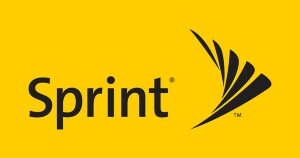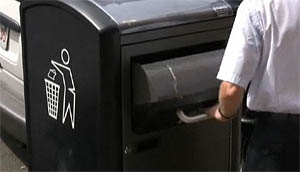
Communication-enabled devices are everywhere, and they are getting even more prevalent by the minute. The carriers breathe a sigh of deep relief. Sprint, for example. And netbooks.
They're like laptops, only smaller. Like smartphones, only bigger. They're extra-small laptop computers with small screens and data connections powered by cell towers. What a concept! Sprint is banking on the fact that somebody has to provide data connections to these devices, and they're raking in the wholesale customers. And the revenue. They could use some revenue. The red ink's been getting pretty deep.
Quoth the Wall Street Journal:
"Unable to sign up enough new cellphone subscribers, Sprint Nextel Corp. is betting it can outflank rivals by renting the excess capacity on its network to makers of consumer gadgets. Sprint, which has spent billions rolling out a high-speed data network, already handles wireless book downloads for Amazon.com Inc.'s popular Kindle reader, though Sprint's involvement is largely hidden from the public."
Not largely hidden, actually hidden. Amazon does all the billing and all the support, and only their name appears in public. Sprint provides the network, and doesn't have to do any customer service (collective sign of relief on the part of the customers!), billing, or even marketing.
According to the Journal, Sprint is courting Garmin, for communication-enabled GPS's, plus Eastman Kodak and SanDisk, for this week's generation of solid-state storage devices, perhaps to upload photos on the go, given a cell network capable of the bandwidth - like Sprint's.
In these deals, Sprint collects fees from manufacturers based on how much data is transmitted through or to the devices. In Kindle's case, for example, Amazon pays Sprint according to how many e-books get downloaded. Wholesale subscribers provide less revenue than retail subscribers, but the burden on Sprint's infamous customer service is zero.
Wholesale services are critical to Sprint's future, says Chief Executive Dan Hesse. "We'll get the lion's share of new products that need a cellular connection," Mr. Hesse said in a recent interview with the Wall Street Journal. About three percent of Sprint's revenue comes from wholesale services. Thats 16 percent or so of its dwindling subscriber base, now pegged at around 46 million. Although the company's subscriber numbers have declined by nearly four million since 2006, its number of wholesale subscribers has risen 27 percent to 8.1 million in the same period, said the Journal article, authored by Amol Sharma and Roger Cheng. Much of that is from small resellers like Virgin Mobile USA.
As Sprint targets other devices besides phones for their cellular network, there are plenty of contraptions to pick, in ever increasing variety. We'll explore, but first a nod to Palm, whose never-marketed Foleo came in underpowered and very costly, and got shelved before I got my hands on one. Yet, the idea was sound: use a smartphone to connect a shrunk-down computer to the world. Now, only a couple of years later, manufacturers are not just pairing externally, but putting actual cellular data connection hardware into just about everything. Even garbage cans. No kidding!

The $3,000, "Big Belly" solar-powered outdoor trash collector notifies the trash service when its capacious compactor needs emptying. Saves garbage trucks a bunch of gas, see? Among others, the City of Boston and Arizona State University just love them, so says the company.
Less interestingly, Ford is adding a dashboard computer to a line of their 2009 commercial trucks. Think GPS for delivery services, plus some features that the driver doesnt control, so the boss can track the vehicle. "I stopped by home for lunch" won't work if the tracking history shows a side trip to the beach.
Sprint isn't the only cell carrier looking to expand their horizons. Other wireless companies have also recently seen green. Green as in money, that is. Other carriers, too, love the trend toward empowering everything with cell-network-dependent technology. In the fall, AT&T created an "emerging devices" unit to bring in business from wristwatches that could transmit of the whereabouts of pets or people. Verizon has certified and connected 35 devices, including a truck monitoring device and a tracking device for prisoners, and the company is pushing its network to makers of e-book readers that compete with Kindle. Or would like to.
Indeed, the CTIA Wireless 2009 convergence in Las Vegas next week will include a panel discussion devoted to embedded wireless. Scheduled panelists include spokespeople for Verizon, AT&T, Sprint, and Best Buy. I wasnt invited.
Panel discussions among the various carriers are definitely needed. From a manufacturer's point of view, it's no mean feat to make a device talk to anybody's network, no matter how "open" the carrier might claim to be. Jim Patterson, Sprint's president of wholesale services, told the Wall Street Journal, "For every five companies that come in and say 'I've got this great idea,' only about one actually gets done." But there is that SMS-enabled trashcan to prove that it can be done.